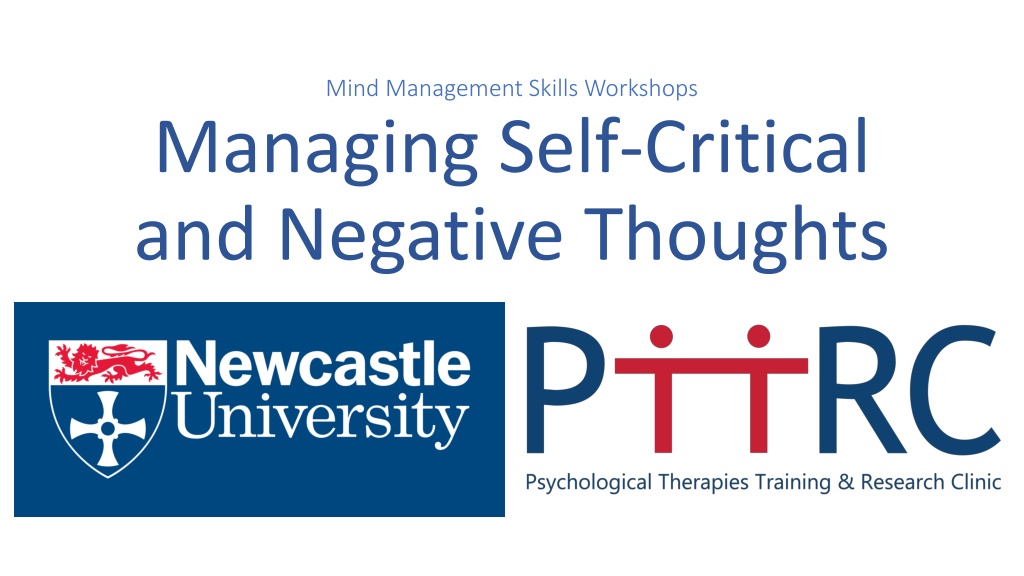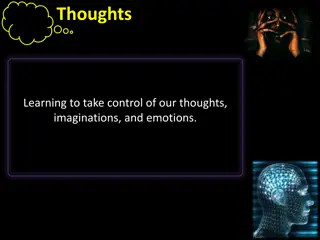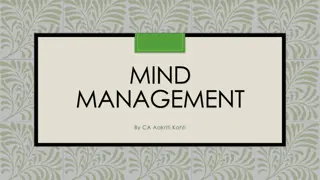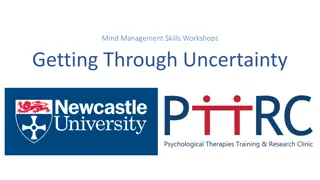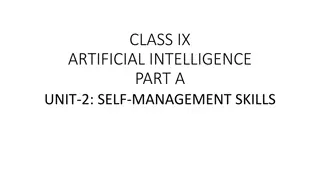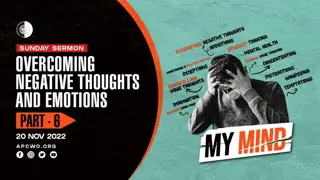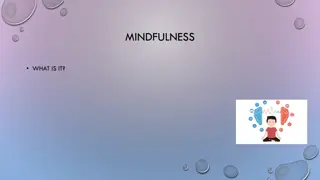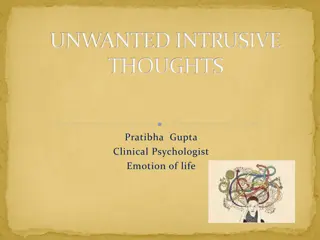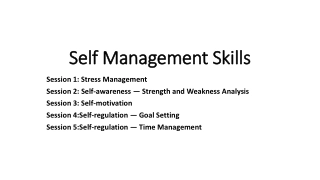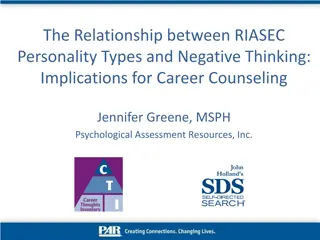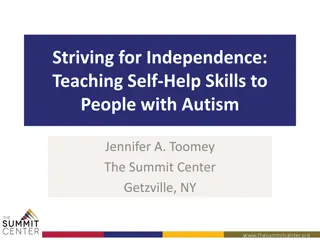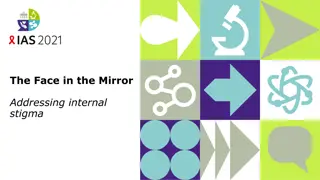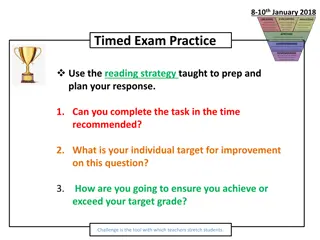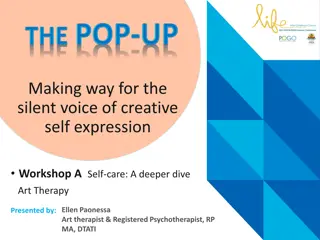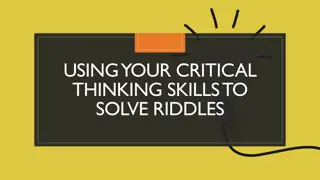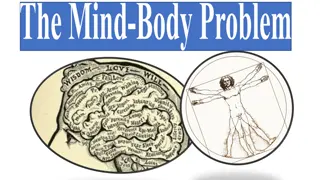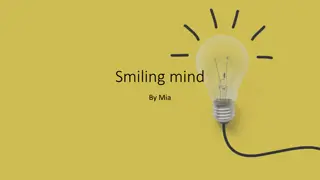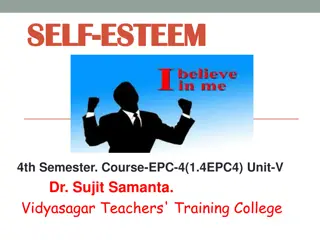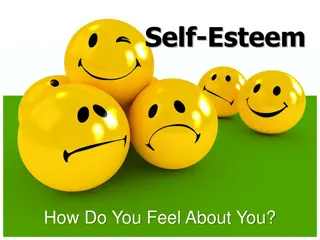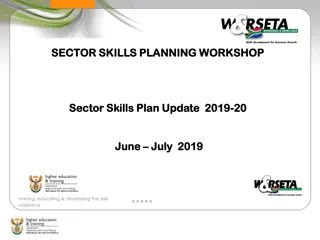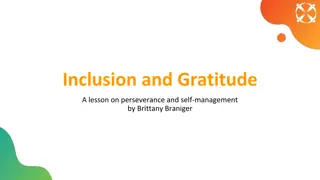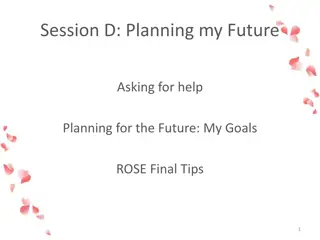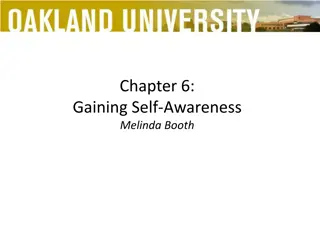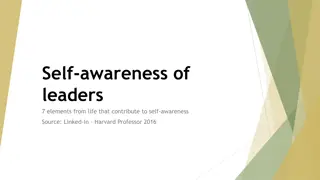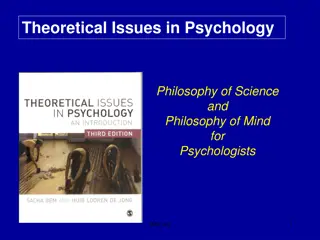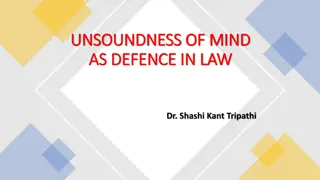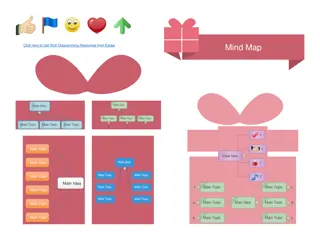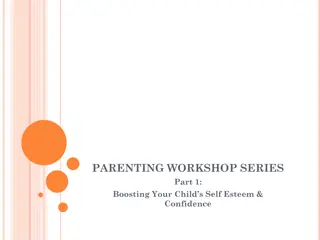Mind Management Skills Workshop: Overcoming Self-Critical Thoughts
Join our interactive workshop where you'll learn to identify and change self-critical thoughts. Maintain confidentiality, respect, and consider further support options if needed. Complete the provided homework task and share your insights during the review session. Our goals include recognizing and altering unhelpful thinking patterns. Tailored for postgraduate students, this session aims to enhance mind management skills.
Download Presentation

Please find below an Image/Link to download the presentation.
The content on the website is provided AS IS for your information and personal use only. It may not be sold, licensed, or shared on other websites without obtaining consent from the author. Download presentation by click this link. If you encounter any issues during the download, it is possible that the publisher has removed the file from their server.
E N D
Presentation Transcript
Mind Management Skills Workshops Managing Self-Critical and Negative Thoughts
Housekeeping Today s workshop will run for 90 minutes and is designed to be interactive we encourage participation Confidentiality you are not expected to share anything that you do not want to, anything disclosed will be kept confidential within the group please see confidentiality rules for further information Please be respectful of other group members who may choose to share their experiences maintain the confidentiality of the group
Further Support The workshops are designed to be skills-focussed, rather than problem- centred. However, if any of today s discussion or exercises cause you to experience distress, you may wish to pursue further support Full details can be found in the supporting information you received before this workshop: - Accessing the Student Health and Wellbeing Service - Listening services such as the Nightline and the Samaritans - How to access evidence-based therapy through the NHS
Homework Set Last Week Notice Using your handouts, throughout the week use the blank vicious cycle diagrams to record your thoughts, feelings and behaviours when you notice you are stressed, upset, anxious etc Label your thought with a possible unhelpful pattern type Ask yourself, was your behaviour helpful, and did it work? Try to complete the exercises live, in the moment your thoughts, feelings and behaviours are occurring
Homework Review Were you able to complete the task? For those who are comfortable to share, can you reflect on your experience of the homework What happened? What was it like? Did it help?
Goals for Today Become aware when we get stuck in a vicious cycle of self critical thoughts Identifying unhelpful thoughts and generating alternatives Changing behavioural response to self critical thoughts
Why this workshop for postgraduate students? To help us design our mind management workshops we ran focus groups with student volunteers to hear their experience of common issues which affected their wellbeing during their studies. One key theme shared amongst the focus group students was imposter syndrome . This was described as experiencing thoughts such as I don t belong here . These thoughts were also described as being modified by comparing themselves to others i.e. they re doing better than me establishing the self critical voice This was also seen to be common amongst thoughts such as failing and not doing good enough We hope the following workshop will help you identify your self critical thoughts, understand how they affect you and offer you some solutions to manage critical you
Vicious Cycle Exercise 1 generating alternatives Trigger Thoughts Behaviour Emotions Exercise 2 changing behaviour Psychological Therapies Training and Research Clinic; School of Psychology
The Importance of Thoughts The mind is its own place, and in itself, can make heaven of hell, and a hell of heaven John Milton
The Importance of Thoughts There are many reasons we have a self critical voice, usually it might have a function such as getting you to behave a certain way When you believe your self critical voice or that you are no good, you start to behave as if its true e.g. hiding away, not trying new things, keeping quiet about what you want, putting things off etc, which can have great consequences for your wellbeing as over time these behaviours can become reinforced. These behaviours amplify self critical thoughts
Imposter Syndrome A fear of being exposed as a fraud , usually because you doubt your abilities, skills and competencies to achieve or fulfil your task or role. Usually associated with thoughts of inadequacy Commonly attributing any successes to chance or fluke , or that you have somehow deceived your superior figure into believing you are more intelligent than you think you are DESPITE Evidence to the contrary
The Importance of Thoughts Situation/Trigger Receive constructive feedback from supervisor Thoughts How did I not realise this point? I should have known better. I m not fit for this, I don t have a clue what I am doing Emotions Frustrated, upset, anxious Physical Feelings Heavy, tense, churning stomach Behaviours Go straight home, spend time alone, ruminate for 1-2 hours, don t look back at work to amend it for several days
Vicious Cycle Exercise 1 generating alternatives Trigger Thoughts Behaviour Emotions Exercise 2 changing behaviour Psychological Therapies Training and Research Clinic; School of Psychology
Generating Alternatives 1. Notice or pin down the negative thought I am noticing that I am having the thought that I do not know what I am doing How accurate is this thought? How fair is it? What is the evidence for/against it? What would I say to a friend who was experiencing this thought? 2. Question the thought, reflect on it as a thought I may have missed something but that doesn t mean I am clueless. I am able to work out what I don t know and apply it. It is my supervisor s job to give me constructive criticism this will ultimately help me. Come to think of it, he has given me plenty of positive feedback before now 3. Generate a more balanced thought that fits the situation
Skills Practice 1 Generating Alternatives Bring to your mind a recent time when you were experiencing self critical thoughts List all your thoughts in the thought box, how it made you feel (emotions) and how you responded at the time (this may be from your vicious cycle or a different occasion) To pin down a thought, look at box of thoughts and ask yourself: which of these thoughts is the most upsetting or bothers me the most? In your groups, having identified the thought, practice working through the steps to generate an alternative
Self fulfilling prophecy A belief, prediction or expectation regarding the outcome of something, and believing it will come true, hence resulting in certain behaviours that align with this belief, consequently fulfilling it Based on the core principle that our beliefs influence our actions Belief: I m not good enough for that job, I will never get it Behaviour: does not apply for job Belief fulfilled = no job Belief: I will fail my presentation Behaviour: don t try as hard, do little research, spend no time on it Belief fulfilled: bad grade
The importance of behaviours Antecedent Behaviour Consequences
The importance of behaviours Possible Function (intended consequence) Self critical thought If I think this way I will work harder, if I work harder I will not be exposed as a fraud I am not good enough for this, my supervisor is going to find out I am a fraud Get temporary relief from distress and uncomfortable thoughts Behaviour Unintended consequence Burnout, anxiety, stress zone Overcompensate, (more hours spent working) [approach behaviour] Low Mood, negative thoughts. Task remains undone Procrastinate, avoid task at hand [avoidance behaviour]
Vicious Cycle Exercise 1 generating alternatives Trigger Thoughts Behaviour Emotions Exercise 2 changing behaviour Psychological Therapies Training and Research Clinic; School of Psychology
Skills Practice 2 changing behaviour Look back at your earlier thoughts feelings and behaviours map, was your behaviour an active or passive behaviour in response to your trigger? Using your hand out (3) in your groups of 3-4, consider: What was the function of what you were doing? What was your intention in this behaviour? What were the possible unintended consequences of this?
The importance of behaviours If we act in a way that means or thoughts are true, how will we experience change within these thoughts? The key to cognitive change or your self critical thoughts is actually behaviour change. When you do differently in response to your thought rather than engaging in them, what new information could you learn about yourself?
Homework: Goal Setting In your groups of 3-4, using handout 4, make a list of behavioural changes you could make to help alter your self critical thoughts. They could be small-big changes you think you can make What will you do differently? Can you schedule in new behaviours e.g. if you are not overworking yourself what else will you be doing If you want to stop procrastinating what will you do differently to alter this? Think of how you will do it, when, and for how long will you do it? In one months time, record the outcome of any changes (on your handout to fill in)
Which teacher would you choose? Teacher 1) Over critical, tells you that you are useless, harsh Teacher 2) Kind, supportive and encouraging
Choosing to do different Your self critical thoughts are like a river. You can either dive in and follow them, or stand on the bank and watch them go by
Key Messages Thoughts are automatic, we cannot control what enters our head but we can change our response to them Self critical thoughts may have a function and get you to behave in a certain way. We can change behaviours The way to deal with self critical thoughts is not through more criticism, a response needs to be supportive and encouraging We can chose not to engage in self critical thoughts
